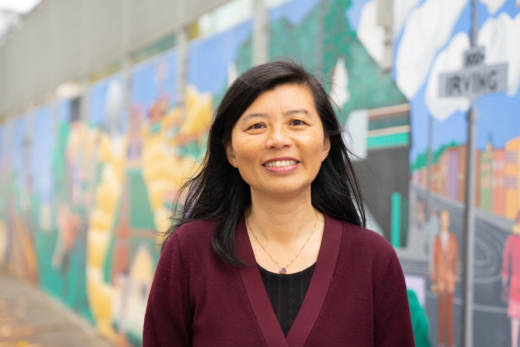On Martin Luther King, Jr. Day, Li Miao Lovett remembers how the Civil Rights Movement left a legacy of a more diverse America.
When I was 6, a girl visiting from my native Taiwan admonished me for smiling at another child because she was black. Even at 6, I could not understand this blatant racism. My response in hindsight: “We wouldn’t even be in the country if not for the Civil Rights movement.”
The first Chinese exclusion acts emerged in the 1880s. By the time I was born in the 1960s the U.S. had fully reopened the doors to Chinese immigrants and my father arrived as a graduate student in that first wave of Asian immigration.
On Martin Luther King Jr. Day, I celebrate the Civil Rights movement that helped foster the historic opening of immigration laws then. President Johnson spoke of lifting the “bars of discrimination” against immigrants. Vice President Hubert Humphrey was more explicit, urging us to “bring our immigration law into line with the spirit of the Civil Rights Act of 1964.” The following year, the Hart-Celler Act opened the doors to people coming from China, India, Brazil, Pakistan, all over --- lifting the ethnic bans and quotas in place for over 40 years.
During my college years, Stanford was not immune to the forces around the world agitating for change. In 1989, our Rainbow Coalition of student groups staged a sit-in demanding that our studies and professors mirror our diversity. As police buses rolled in, this made national news. Coming from a scrappy, isolated upbringing in Chinatown, I began to understand the power of collective action. In my sophomore year, Coretta Scott King spoke of her husband’s legacy to an auditorium of rapt students. When I took the stage, it was no longer about representing my people. Our diversity carried a common message, that our humanity is made whole when quotas are lifted, walls torn down.
